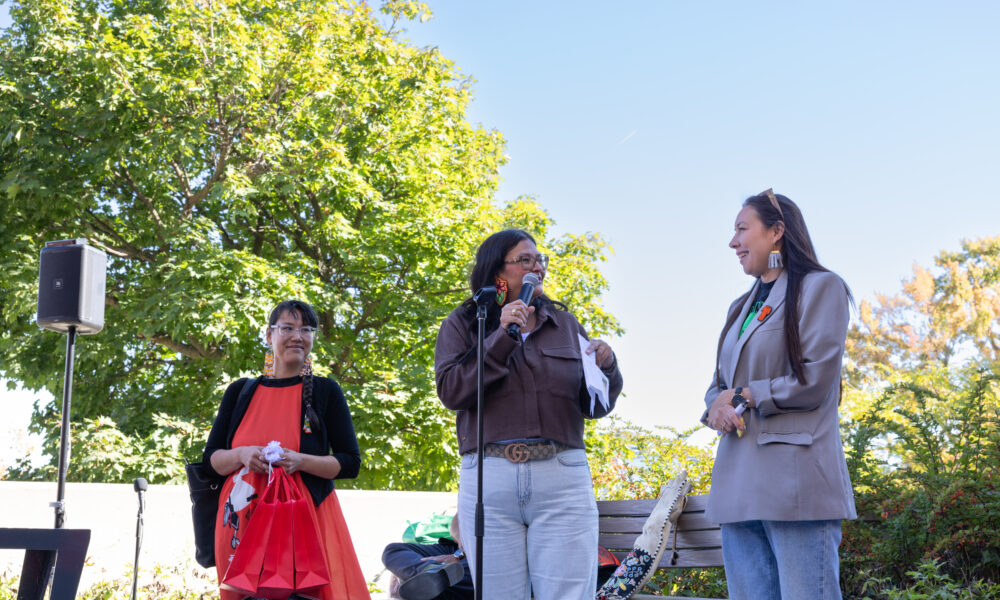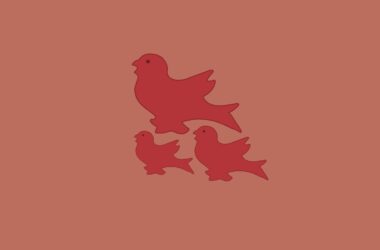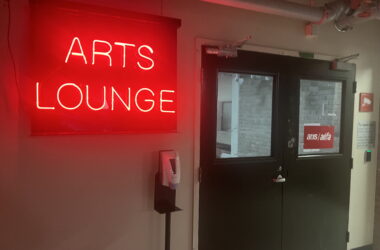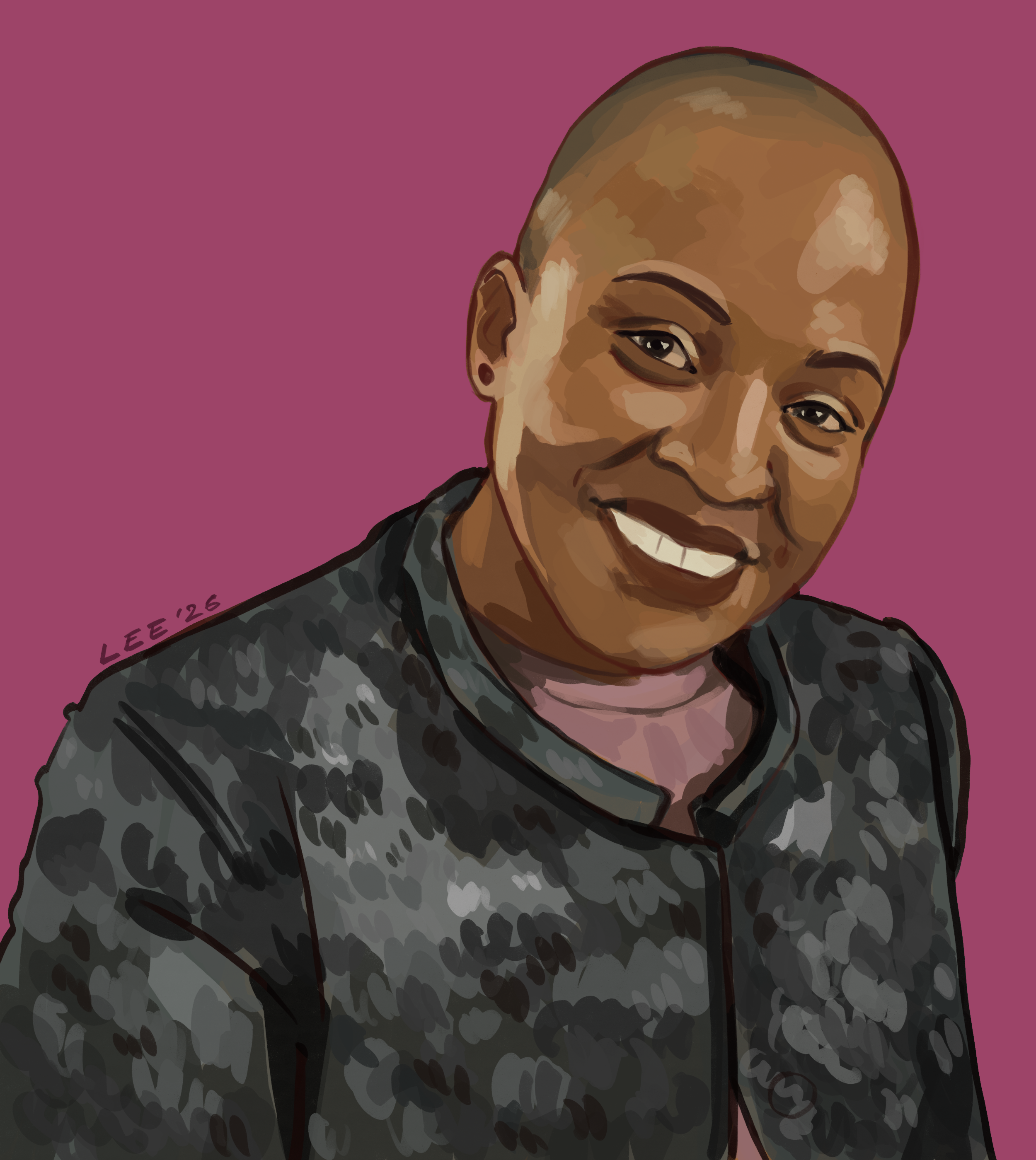McGill’s Faculty of Education hosted its seventh annual Skátne Entewathahíta/We Will Walk Together event on Sept. 30. The event, held on Canada’s National Day for Truth and Reconciliation, included speeches from various Indigenous leaders, a land-based activity, and a tour of Indigenous art on public display at McGill.
The event began with opening remarks from Geraldine King, assistant professor in the Department of Integrated Studies in Education (DISE) and co-director of McGill’s Office of First Nations and Inuit Education. King emphasized the relevance of Canada’s residential school system as an ongoing issue, rather than an event of the past.
“It’s a day of honouring what’s happened […] to not only our ancestors, but folks in my own generation who, in fact, attended residential schools,” she said. “I want everyone to acknowledge that this isn’t a part of history. It’s not an artifact. It’s not archeology, looking into what happened in the deep past. This is, in fact, very present and very real.”
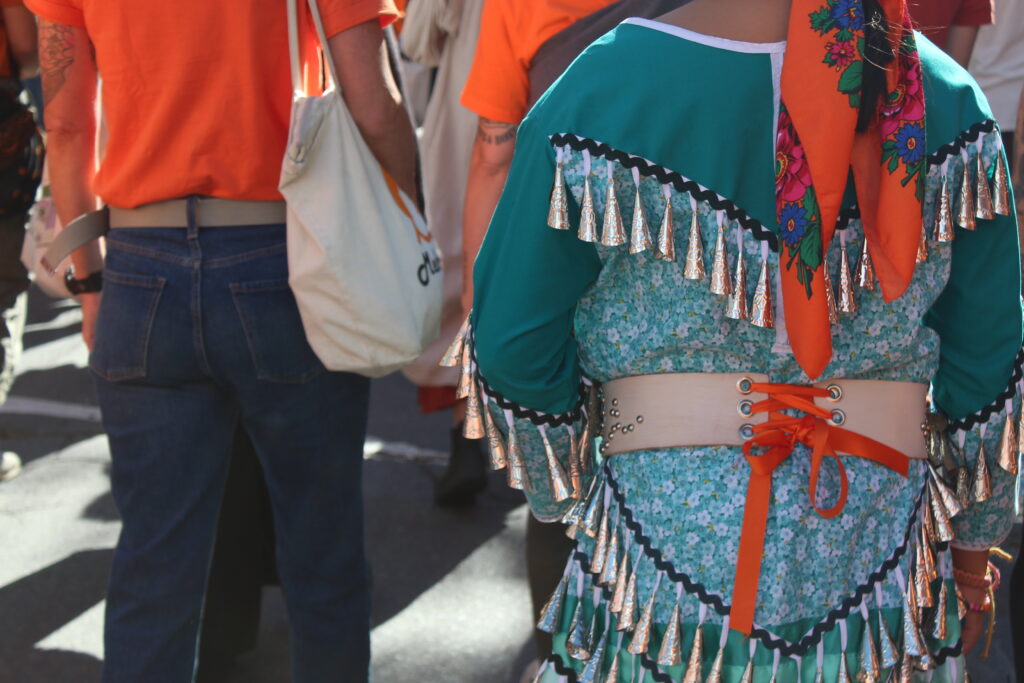
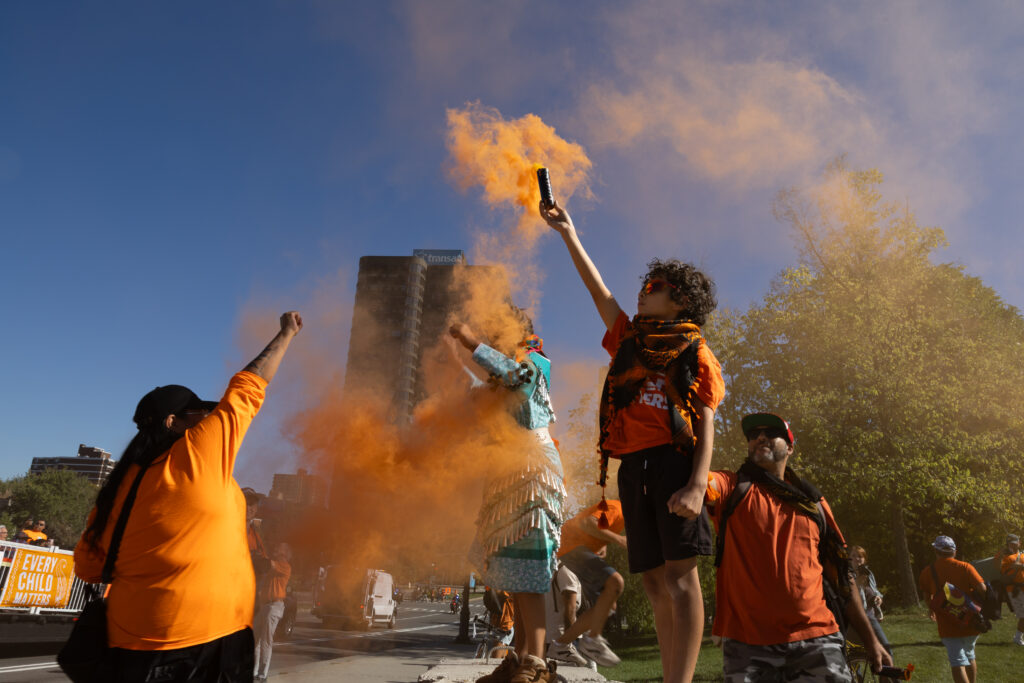
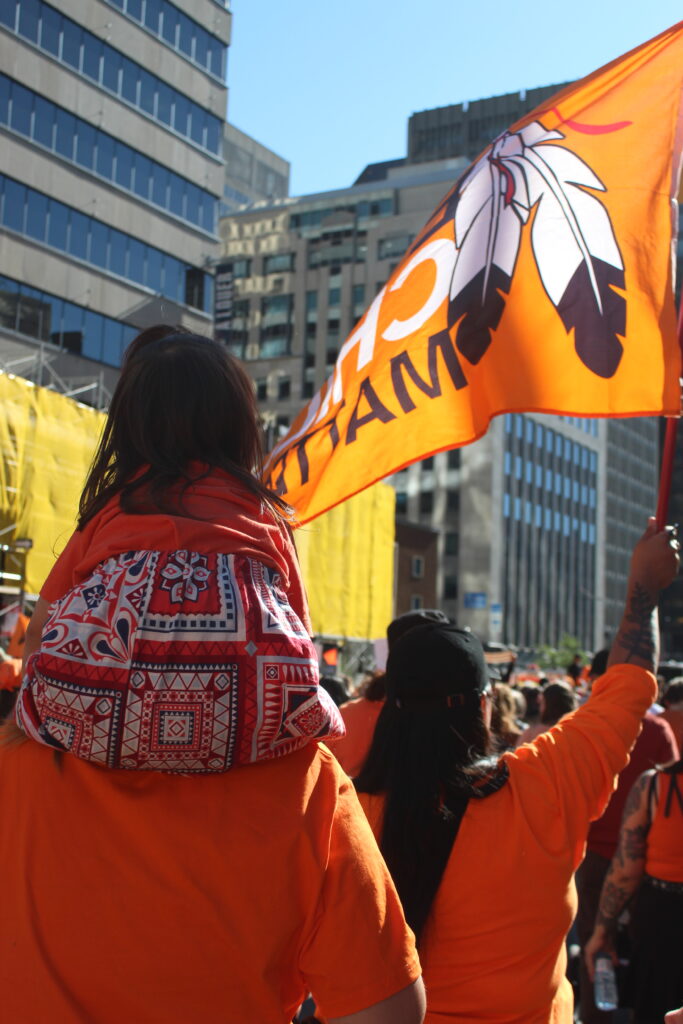
The next speaker was assistant professor Michelle Kennedy, part of DISE’s Contract Academic Staff. She spoke on the importance of supporting Indigenous family and friends, and being educated on their struggles with the residential school system.
“Often, a lot of people who attend residential schools die fairly young,” Kennedy said. “I didn’t get a chance to really know my grandparents [who attended]. I spend a lot of time asking my relatives what they were like. That’s a really odd question to ask, but you have to do research about your family members, and often I find what comes out are the hardships that they experienced.”
Robert Spade, Anishinabeininii dancer, artist, and professor at McGill’s Schulich School of Music, then took the floor. Spade challenged those in attendance to find their origin stories as a way to connect with their ancestors and the past.
“Find your creation story. Do not be colonized,” Spade stated. “If you today do not have your creation story, where you’re from, [if] you don’t have that connection, you were robbed. Think about that. I have mine. Sure, they beat me in a school. They ridiculed me for speaking my language. But I have my place in the universe. Today, I am grateful for life, because nobody knows where that’s from or how to make it.”
AJ Esquega, Energy Projects Coordinator from the Kiashke Zaaging Anishinaabek (Gull Bay) First Nation, gave further remarks. He highlighted Indigenous food sourcing practices as central not only to Indigenous cultural identity, but also to community well-being, including for later generations.
“[I want] to create a very positive space so that we can all live and grow and take care of each other and the land for future generations,” Esquega said. “I’ve been growing up on the bush, not knowing that’s part of who we are, too, hunting, fishing, trapping, and learning how to field-dress a moose, […] how to cook it, and how to feed our communities and feed our families.”
Following these opening remarks, Esquega hosted a land-based activity which included birch bark etching, crafting decorative wooden canoes, and tasting birch syrup. He continued to emphasize the importance of these exercises as a way to connect with Indigenous culture, recalling how he learned them firsthand with his grandfather.
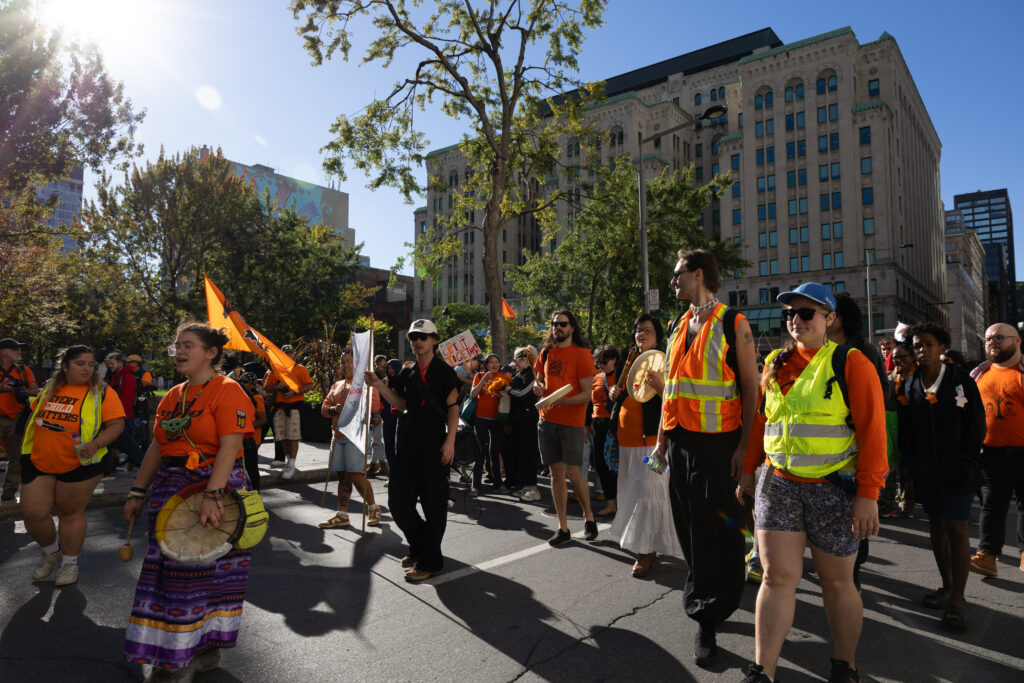
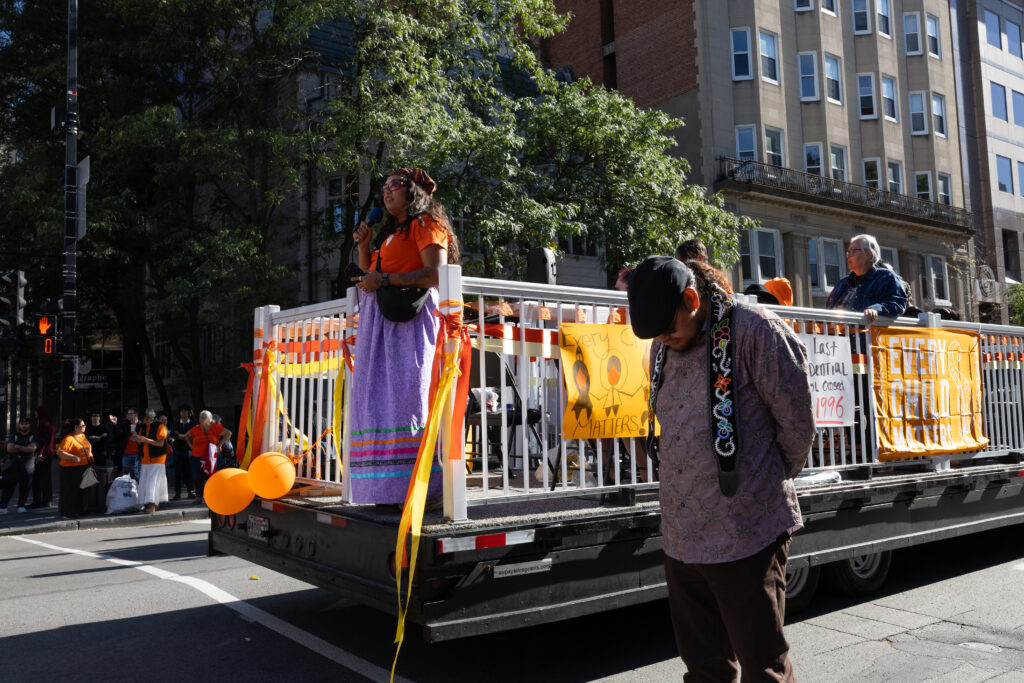
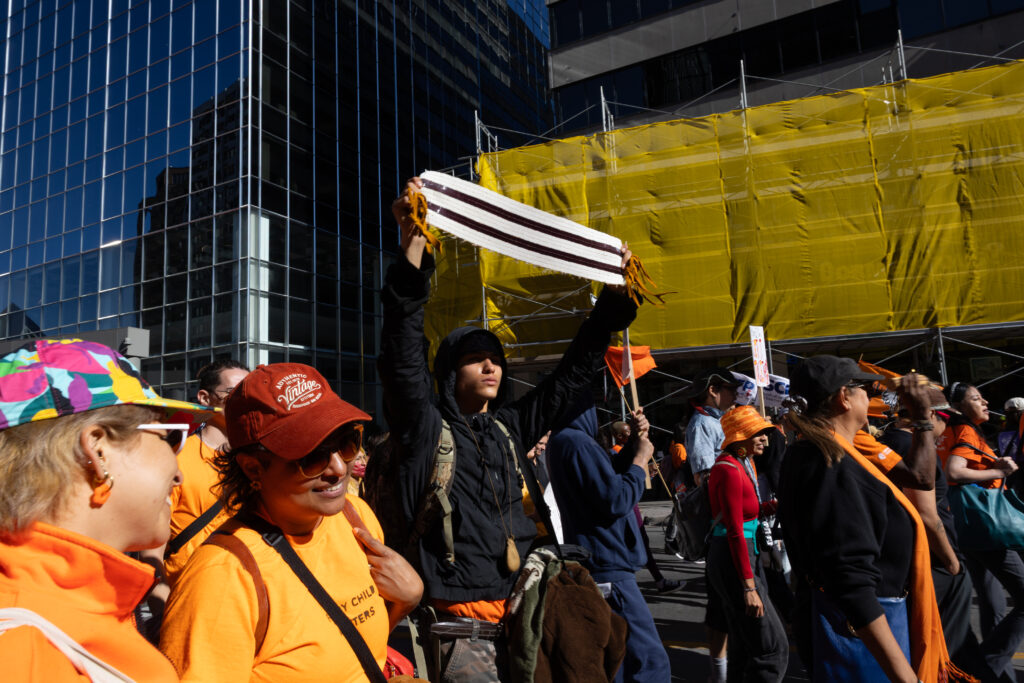
Approximately 30 students attended the land-based activity. One Métis attendee, Franny Hansen, U3 Nursing, explained in an interview with The Tribune that the National Day for Truth and Reconciliation is a time to honour Indigenous ancestors who endured residential schools, and to reclaim the culture they were denied.
“It’s really important for me on Truth and Reconciliation Day to remember [that] I have ancestors, my great grandparents, that went to residential schools,” Hansen said. “So it’s really important to reflect and remember all the children that [had] their culture stripped and taken away, due to colonization, due to residential schools, and to celebrate the culture that they weren’t able to celebrate.”
